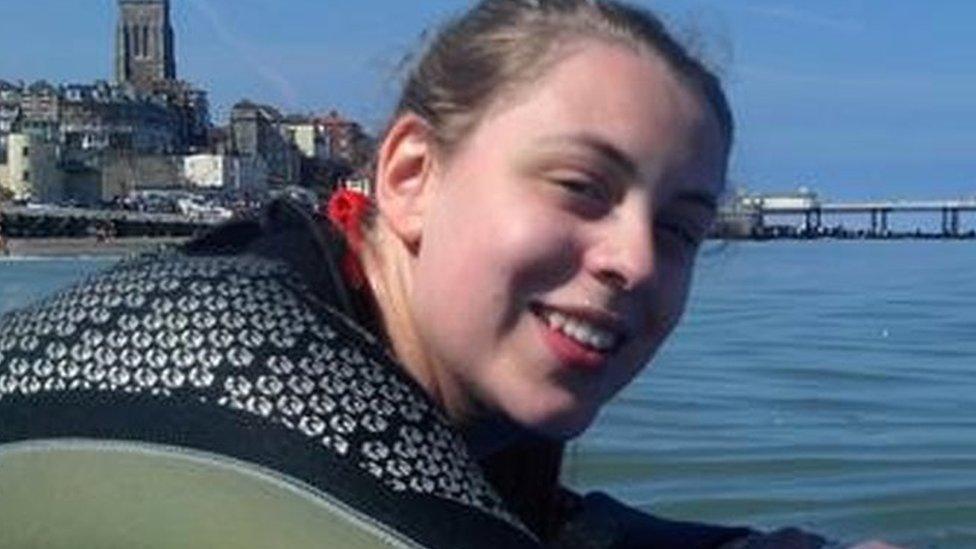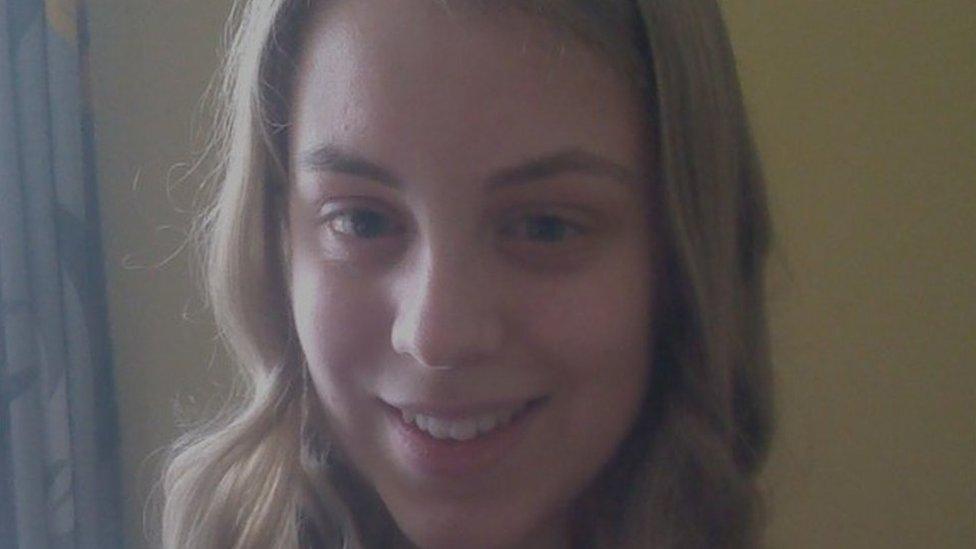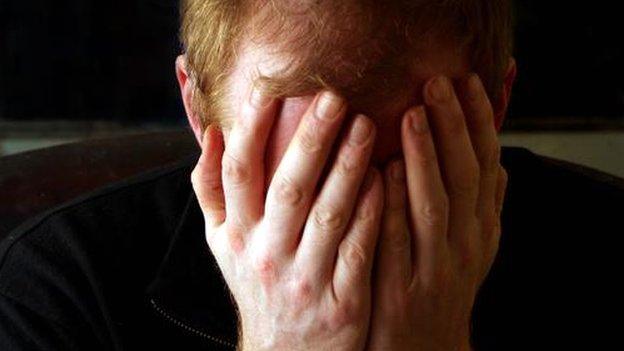Student suicides: Parents' petition to change law passes 100,000 names
- Published

Natasha Abrahart, from West Bridgford in Nottinghamshire, killed herself at the age of 20
A petition by a group of parents whose children killed themselves at university has reached 100,000 signatures.
The petitioners are campaigning for a change in law to ensure universities have a legal duty of care towards their students, as schools already do.
The parents include Natasha Abrahart's mother and father, who sued the University of Bristol over her suicide.
The government said universities already had a general duty of care.
The petition, to the government, is being supported by 25 bereaved families, who have come together and set up The LEARN Network, external.
Now the petition has passed the 100,000 mark it will be considered for a debate in parliament.
"Our petition is quite straightforward, it's asking the government to enact a legal duty of care for the higher education sector," said Bob Abrahart, Natasha's father, from Nottinghamshire, has previously told the BBC.
"Everybody assumes that universities have a duty of care. The universities argue they care, but they don't have a legal duty of care, it's some sort of moral duty."

Natasha Abrahart's parents want legislation to protect other students
Natasha had social anxiety disorder, which made it difficult for her to speak in front of people, and she killed herself on the day she was due to give a presentation in a large lecture theatre.
Her parents took legal action against the University of Bristol under two types of law - the Equality Act 2010 and also the law of negligence.
They were able to win their claim under the Equality Act because Natasha's social anxiety disorder was classed as a disability, and the judge ruled the university had not made reasonable adjustments in the way she was assessed as part of her course.
However, they lost the negligence part of their case, because the judge was not satisfied that the university owed Natasha a duty of care. His judgement, external noted that "there is no statute or precedent which establishes the existence of such a duty of care owed by a university to a student".
This is why the Abraharts want new legislation, in order to protect students who are not already protected under the Equality Act.

Natasha had social anxiety disorder, which was classed as a disability under the Equality Act
Their solicitor, Gus Silverman, said the judgement in Natasha's case highlighted "the lack of legal protections for students who don't benefit from the Equality Act".
In a response to the petition, the Department for Education said: "Higher Education providers already have a general duty of care not to cause harm to their students through their own actions.
"We acknowledge the profound and lasting impact a young person's suicide has upon their family and friends, and know among the petitioners there are those who have personal experience of these devastating, tragic events.
"[However] we... feel further legislation to create a statutory duty of care, where such a duty already exists, would be a disproportionate response."
A University of Bristol spokesperson has previously said: "Every single member of staff cares deeply about the welfare of our students and, as with all universities, we provide a wide range of pastoral support services which they can easily access.
"Part of this support involves assisting students to access specialist care under the NHS or other providers should they need it, as happened in Natasha's case."
If you have been affected by any of these issues, you can visit the BBC's Action Line or contact the Samaritans, external.

Follow BBC East Midlands on Facebook, external, on Twitter, external, or on Instagram, external. Send your story ideas to eastmidsnews@bbc.co.uk, external.
- Published7 October 2022

- Published6 October 2022

- Published6 October 2022

- Published20 May 2022

- Published25 May 2016
